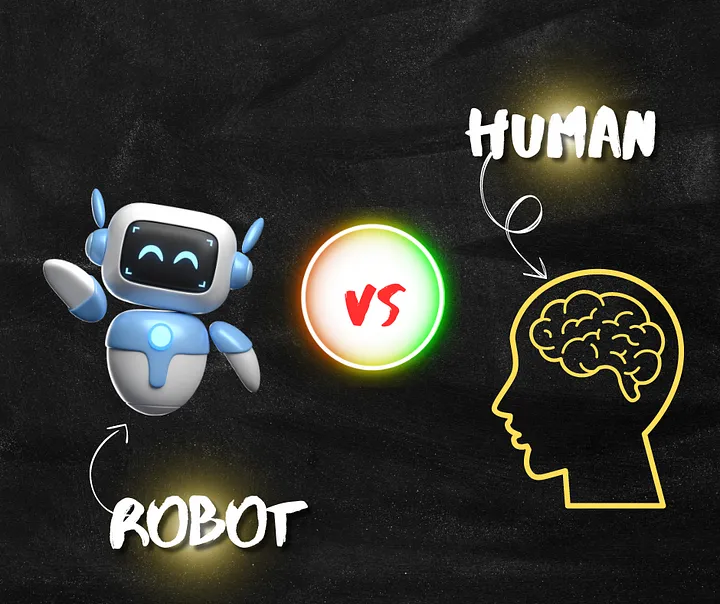The New Frontier of Financial Services
Ready to explore the future of finance? Start by evaluating your current financial tools and see how DeFi and Open Banking can enhance your experience. Sign up for trusted platforms, secure your digital wallets, and stay proactive about your financial security. The frontier of financial services is here—make it work for you.
Exploring the mechanics of decentralized finance (DeFi), the promise of Open Banking, and how these innovations work together to create a more inclusive, transparent, and efficient financial ecosystem.
The New Frontier of Financial Services
1. Understanding DeFi and Open Banking: A Paradigm Shift

What is Decentralized Finance ?
You may have heard the buzz around cryptocurrencies, but DeFi is a broader movement that uses blockchain technology to provide financial services without intermediaries. Imagine being able to lend, borrow, trade, or earn interest without relying on banks or traditional brokers.
DeFi operates on decentralized networks, meaning your transactions are verified by multiple computers around the world, enhancing transparency and reducing the risk of manipulation. This system empowers you with greater control over your assets, bypassing the usual gatekeepers.
The Concept and Benefits of Open Banking
Open Banking, on the other hand, focuses on collaboration between financial institutions and third-party providers. Through secure APIs (Application Programming Interfaces), your bank can share your financial data—with your permission—to enable better services, like personalized budgeting apps or faster loan approvals.
For you, this means more choice, convenience, and control. Instead of being locked into one bank’s ecosystem, Open Banking opens up a landscape where your financial data fuels innovation tailored to your needs.
How DeFi and Open Banking Differ and Complement Each Other
While DeFi removes centralized control entirely, Open Banking enhances the traditional system by encouraging cooperation between banks and fintechs. You can think of Open Banking as an upgrade to existing structures, while DeFi is more of a complete overhaul.
Together, they offer a spectrum of options—from regulated, bank-backed services to entirely decentralized alternatives—giving you flexibility depending on your comfort level with risk and innovation.
The Role of Blockchain and APIs in Modern Finance
Blockchain is the backbone of DeFi, providing a tamper-proof ledger of transactions that everyone can verify. This technology eliminates intermediaries, reduces costs, and accelerates processes that used to take days.
APIs are the unsung heroes of Open Banking. They enable seamless data exchange between your bank and trusted third parties, allowing apps and services to communicate securely and deliver richer financial experiences for you.
2. How DeFi and Open Banking Are Transforming Financial Services

Enhanced Financial Inclusion and Access
One of the most significant promises of DeFi and Open Banking is expanding access to financial services. If you’re in a region underserved by traditional banks or face barriers like high fees, these technologies offer alternatives.
DeFi protocols allow you to participate in global financial markets without paperwork or credit checks. Similarly, Open Banking encourages innovation that can create tailored products for previously excluded demographics, like microloans or real-time credit monitoring.
Increased Transparency and Security Through Blockchain
Because DeFi operates on public blockchains, all transactions are recorded openly. This transparency reduces fraud and increases your confidence in the system. You can verify transactions independently, which traditional banking sometimes obscures.
Security also improves since decentralized networks have no single point of failure, making them resilient against hacks that often plague centralized systems.
API-Driven Innovation and Customer-Centric Services
Open Banking’s APIs empower developers to build tools that put your needs first. Imagine apps that aggregate your spending across multiple accounts, provide personalized financial advice, or even automate savings goals based on your habits.
This shift means services become more tailored and proactive—working for you rather than expecting you to fit within rigid bank products.
The Impact on Traditional Banks and Fintech Companies
As these innovations grow, traditional banks face pressure to adapt or collaborate with fintech startups. You’ll notice banks adopting Open Banking APIs to offer enhanced services and even exploring blockchain for improved efficiency.
Fintech companies benefit by accessing your data (with consent) to create smarter products, while banks improve agility and customer experience. This competition and cooperation ultimately work in your favor by increasing options and quality.
3. Key Technologies Driving the New Financial Frontier

Blockchain and Smart Contracts in DeFi
At the heart of DeFi are smart contracts—self-executing agreements coded on the blockchain. These contracts automatically enforce terms like loan repayments or trade settlements without human intervention.
For you, this automation reduces costs, speeds up processes, and removes uncertainties often associated with manual oversight.
Open Banking APIs and Data Sharing Protocols
Open Banking relies on standardized APIs that ensure your data is shared securely and efficiently. These protocols give you control over what information is shared and with whom.
This technology supports a vibrant ecosystem of apps and services, giving you the freedom to choose financial tools that best fit your lifestyle.
Digital Wallets and Cryptocurrency Exchanges
To engage with DeFi, you’ll need a digital wallet—a secure app that holds your cryptocurrencies and tokens. Wallets like MetaMask or Coinbase Wallet act as your gateway to decentralized applications, allowing you to manage assets and interact with DeFi protocols.
Cryptocurrency exchanges facilitate buying, selling, and swapping digital assets, bridging the gap between traditional currencies and blockchain-based finance.
Payment Networks and Cross-Border Transactions
DeFi and Open Banking simplify cross-border payments, which traditionally are slow and costly. Blockchain technology enables near-instant settlements, while Open Banking APIs facilitate smoother currency conversions and compliance checks.
You can send and receive money internationally with lower fees and greater transparency—transforming global commerce and remittances.
4. Regulatory Landscape and Challenges Facing DeFi and Open Banking
Understanding PSD2 and Other Key Regulations
In Europe, regulations like PSD2 (Payment Services Directive 2) mandate banks to open APIs to third parties, fueling Open Banking. These rules aim to protect you while promoting competition.
Globally, regulations vary, and understanding how they apply is crucial for your security and trust.
Balancing Innovation with Consumer Protection
Regulators face the challenge of encouraging innovation without exposing you to undue risk. Ensuring data privacy, preventing fraud, and maintaining system stability are priorities.
You should stay informed about your rights and the security measures your service providers implement.
Compliance Challenges for DeFi Platforms
DeFi’s decentralized nature complicates regulation since there’s no central entity to hold accountable. This raises questions about legal compliance, anti-money laundering (AML), and know-your-customer (KYC) policies.
As a user, you must exercise caution and perform due diligence before engaging with DeFi platforms.
The Role of Regulatory Bodies Like FCA and SEC
Organizations such as the UK’s Financial Conduct Authority (FCA) and the U.S. Securities and Exchange Commission (SEC) actively monitor and regulate fintech and DeFi developments.
Their evolving guidelines shape how services develop and provide frameworks to safeguard your interests.
5. What the Future Holds: Opportunities and Risks in DeFi and Open Banking
Emerging Trends and Innovations to Watch
You can expect DeFi and Open Banking to converge further, with hybrid models blending decentralization and regulation. Innovations like decentralized identity, AI-driven financial management, and tokenized assets will deepen your engagement with finance.
Potential Risks Including Security and Fraud
Despite benefits, risks persist. You must be vigilant against phishing scams, smart contract bugs, and platform insolvencies. The complexity of these systems means mistakes can be costly.
Educate yourself, use reputable services, and consider diversifying your financial activities.
How Consumers and Businesses Can Prepare
Prepare by adopting strong security habits like multi-factor authentication, regularly reviewing permissions, and staying updated on regulatory changes.
Businesses should prioritize transparency, compliance, and user education to build trust and resilience.
The Long-Term Vision for Financial Services
Ultimately, this new frontier aims to democratize finance—giving you greater control, inclusivity, and innovation. Whether you’re an individual, investor, or business, understanding and leveraging DeFi and Open Banking will position you for success in the digital economy.
Exploring the Next Wave of Fintech Innovations
Embrace the New Frontier of Financial Services
DeFi and Open Banking are not just buzzwords—they represent a seismic shift in how you interact with money. By embracing these changes thoughtfully, you unlock new opportunities to manage your finances with greater freedom, security, and personalization.
Take control of your financial future by exploring these innovations, staying informed, and choosing partners who prioritize your security and empowerment.


